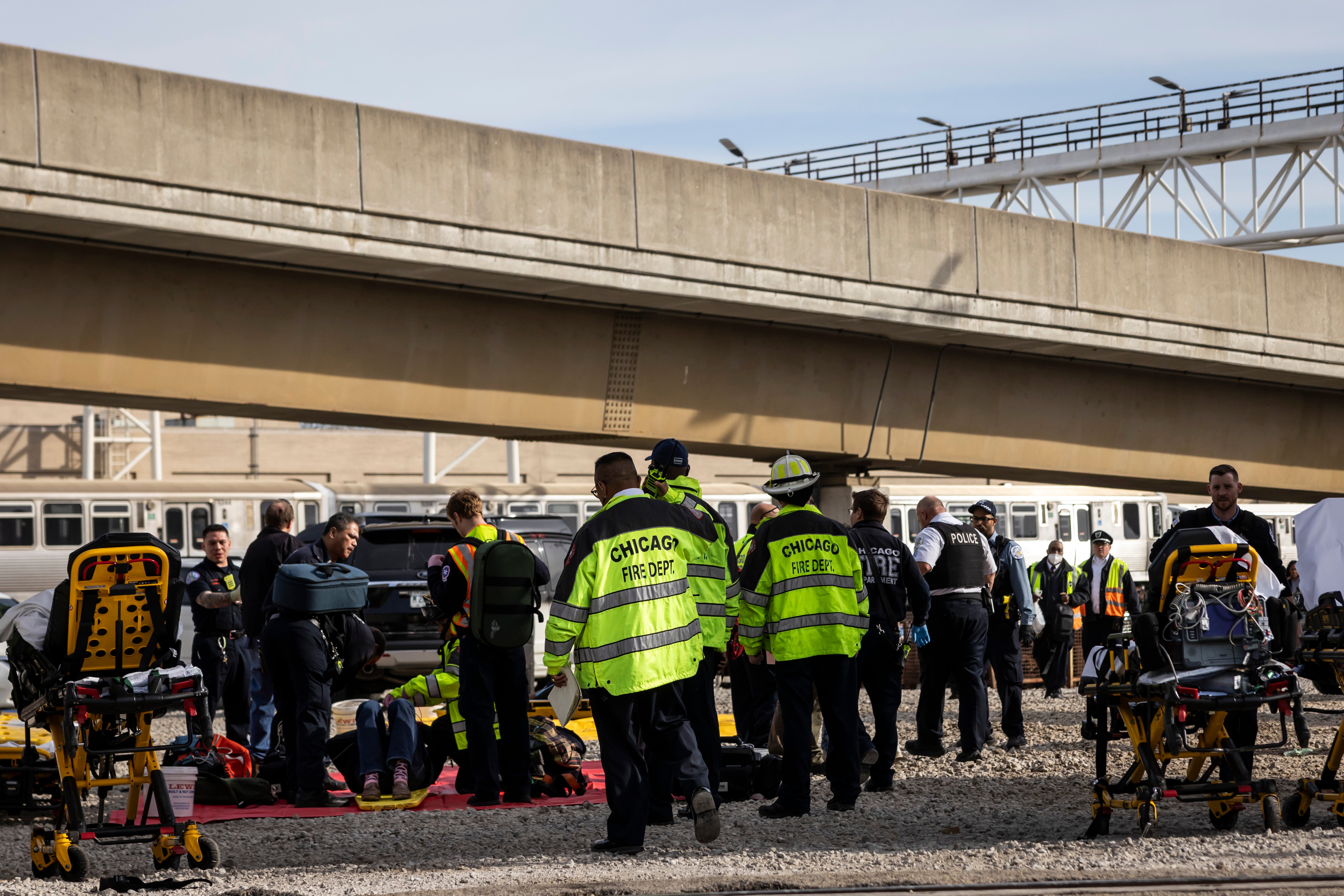Chicago train operator had alcohol in his system during 2023 crash, officials say
Federal investigators say the operator of a Chicago commuter train that crashed almost a year ago had alcohol in his system

Your support helps us to tell the story
From reproductive rights to climate change to Big Tech, The Independent is on the ground when the story is developing. Whether it's investigating the financials of Elon Musk's pro-Trump PAC or producing our latest documentary, 'The A Word', which shines a light on the American women fighting for reproductive rights, we know how important it is to parse out the facts from the messaging.
At such a critical moment in US history, we need reporters on the ground. Your donation allows us to keep sending journalists to speak to both sides of the story.
The Independent is trusted by Americans across the entire political spectrum. And unlike many other quality news outlets, we choose not to lock Americans out of our reporting and analysis with paywalls. We believe quality journalism should be available to everyone, paid for by those who can afford it.
Your support makes all the difference.Federal investigators say the operator of a Chicago commuter train that crashed almost a year ago had alcohol in his system.
The Chicago Transit Authority train crashed into a slow-moving snow plow that was on the rails on Nov. 16. Thirty-eight people were hurt, including the train's operator.
A National Transportation Safety Board report states that a hospital test showed the 47-year-old operator had a blood-alcohol level of 0.06% about an hour after the crash, the Chicago Tribune reported Thursday. The federal limit is 0.02%. The state limit in Illinois is 0.08%.
An additional test at a federal laboratory revealed his blood-alcohol level was 0.048%, according to the report, which was published Aug. 8.
The CTA told the newspaper Thursday that the NTSB had prohibited the agency from commenting on an ongoing investigation. The agency issued a statement saying it monitors employee drug and alcohol use by conducting hundreds of random tests of employees monthly. The train operator was hired in 2021 but never took a random drug or alcohol test during his tenure, according to the NTSB report.
The operator told investigators the train's brakes didn't work properly in the moments leading up to the crash, according to the report.
“I got the brake down, but I’m still feeling a little push on the train, so I’m like, I’m pulling it down,” the operator told NTSB investigators. “I jump on the radio, (saying) 'train not stopping.' I’m like well, my body’s going to get crushed."
NTSB investigators said in the days after the crash that they were focusing on a design problem with the train’s braking system. NTSB officials said that preliminary findings suggested the train was traveling at 26.9 mph (43.3 kph) when it hit the snow plow.
The plow was on the tracks as part of training for the winter season. A rail instructor who was working on the plow told investigators it appeared as if the train operator tried to apply the brakes but he knew a crash was inevitable.
“I was praying and hoping that it would stop, but the speed that the train was coming, I already knew that it wasn’t going to stop,” the instructor said.
The instructor hit his head and fell unconscious for a few seconds. He said the operator did slow the train somewhat, potentially saving lives.
“The operator is the real hero because if (he) didn’t slow down that train, I probably wouldn’t be here with you guys right now,” the instructor told investigators.